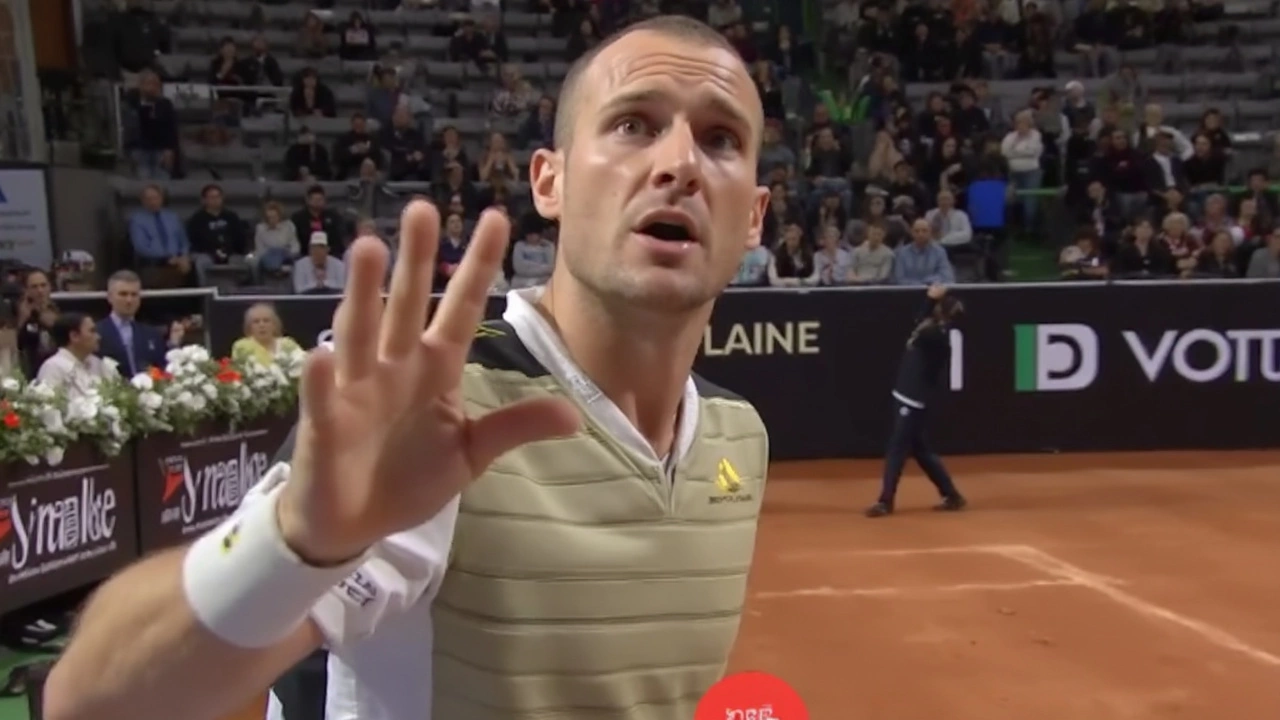Dan Evans and the Boiling Point of Tennis Line Call Drama
If you thought tennis was all quiet crowds and gentlemanly handshakes, Dan Evans just gave you a reality check during his Italian Open 2024 first-round clash against Italy’s Fabio Fognini. In a moment that’s become a hot topic among tennis fans, Evans lost his temper over a botched call, reigniting long-simmering frustrations about line judging in the sport.
The drama peaked deep in the third set. Evans had worked himself into a rare break point, trailing 3-1 but eyeing a way back into the contest. Fognini chased down a ball and went for a forehand volley. The ball landed noticeably wide, but to almost everyone’s disbelief, chair umpire Mohamed Lahyani called it in. The point went to Fognini, and in a flash, what might have been a turning momentum for Evans instead tilted fully in the Italian’s favor.
Evans didn’t bite his tongue. He demanded Lahyani take another look, even pointing out the ball mark and arguing his case as cameras rolled. Video replays later confirmed exactly what Evans and the crowd saw—the ball was out. But Lahyani, sticking to his guns, refused to reverse the call. The umpire’s decision stood, the break point vanished, and Evans’ temper boiled over.
What happened next was raw emotion you rarely see in such a public setting. Evans unleashed a stream of frustration, hurling profanities at the umpire and making his fury loud enough for everyone in the arena to hear. For his outburst, he got a formal warning for unsportsmanlike conduct. With the air of controversy swirling and his focus understandably shaken, Evans couldn’t claw his way back. Fognini rode the emotional wave to seal the match.

Bigger Issues Loom: The Shift to Electronic Line Calls
This wasn’t just about one missed call or a player losing his cool. Evans’ meltdown—and the video proof backing up his case—put the spotlight firmly on something tennis has been wrestling with for years: the reliability of human line calls. In a high-stakes, fast-moving game, mistakes happen, but when a simple replay shows an error that an official won’t fix, it’s easy to see why players get so agitated.
The tech fix is already on the horizon. The sport’s authorities have announced that from 2025, all major ATP and WTA events will adopt electronic line judging, removing human guesswork from these calls. Moments like Evans’ have shown just how overdue this shift is. Players, especially those in tight matches where a single point can swing everything, need to trust that the basic facts—the lines—are getting called right.
Evans later admitted he crossed a line himself with his profanity, but his anger wasn’t just about one call. It’s about a bigger issue with the way tennis officiating works, and what’s at stake for the athletes affected by these errors. Until the full rollout of electronic systems, expect the tension—and outbursts—to keep simmering. The Evans incident isn’t just a one-off meltdown; it’s another chapter in the long story of a sport finally catching up with technology.
